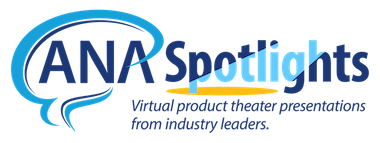Evolving Perspectives in Alzheimer Disease: Reaching an Earlier Diagnosis, Understanding Neuroinflammation, and Exploring Therapeutic Advances
Early diagnosis of Alzheimer disease; neuroinflammation as therapeutic target; safety, efficacy of investigational agents targeting neuroinflammation...
Episode Description
Patients with early Alzheimer disease (AD) are not being diagnosed and treated optimally. As few as 20% of Americans with AD are diagnosed, and 50% are exposed to inappropriate medications. Neurologists have an essential role to play in the early diagnosis of AD, leading to earlier interventions (both pharmacologic and nonpharmacologic) to help maintain and improve physical and cognitive functioning. Several clinical trials in individuals “at risk” for AD or with preclinical or prodromal AD are now underway. Underlying mechanisms, which are represented among these trials, include neuroinflammation. There are 3 broad clinical approaches being taken to target neuroinflammation: agents promoting a broad-ranging immunomodulatory effect, agents focusing on the inflammatory signaling cascade, and agents targeting those cells resident in the central nervous system that are involved in neuroinflammation.
This program provides an in-depth review of current state of the art in the early diagnosis of AD through case-based discussion. This engaging satellite symposium also elucidates the role of neuroinflammation as a therapeutic target in AD and highlights safety and efficacy data for investigational agents targeting neuroinflammation.
Featuring
-
Guest:
Alireza Atri, MD, PhD, Banner Alzheimer’s and Research Institutes
-
Guest:
Erik S. Musiek, MD, PhD, Washington University School of Medicine
-
Guest:
Malú Gámez Tansey, PhD, University of Florida College of Medicine
Read Full Episode DescriptionStoke Therapeutics: Treatment outcomes of STK-001 for Dravet syndrome
In this video, Dr Scott Perry, MD of Cook Children’s Medical Center presents data from multiple ongoing clinical studies that support the potential of STK-001, an antisense oligonucleotide, as the first disease-modifying treatment for Dravet...
Episode Description
In this video, Dr Scott Perry, MD of Cook Children’s Medical Center presents data from multiple ongoing clinical studies that support the potential of STK-001, an antisense oligonucleotide, as the first disease-modifying treatment for Dravet syndrome. This presentation was recorded at the 2023 International Epilepsy Congress. For additional information about STK-001 or Stoke Therapeutics, please contact Stoke Therapeutics at Medicalinformation@stoketherapeutics.com or visit www.stoketherapeutics.com/
Featuring
Read Full Episode DescriptionNMD Symposium: The role of neuromuscular transmission failure and ClC-1 inhibition as a novel therapeutic approach across neuromuscular diseases; positive proof of mechanism in patients with myasthenia gravis
Episode Description
In a group of neuromuscular diseases, dysfunctions that cause excitation failures of muscle fiber action potential at the neuromuscular junction (NMJ) lead to excessive and, in some cases, life-threatening muscle weakness. Multiple cellular mechanisms can cause NMJ transmission failure in these diseases, commonly affecting the release of acetylcholine from pre-synaptic nerve terminals or the post-synaptic ability of muscle fibers to respond to that release.
During this symposium, we will examine how different neuromuscular diseases affect the NMJ transmission including spinal muscular atrophy, Charcot-Marie Tooth and myasthenia gravis. We will review current clinical evidence of these abnormalities in patients, their correlation with the severity of their symptoms and the potential of skeletal muscle-specific ClC-1 ion channels inhibition to correct these deficits.
Unpublished data results from a proof of mechanism study utilizing a novel and first in class ClC-1 inhibitor in patients with myasthenia gravis will be presented and discussed; patients enrolled in a randomized, double-blind, placebo-controlled, three-way crossover study received a ClC-1 inhibitor and demonstrated clinically relevant improvements.
Featuring
-
Guest:
Dr. W. David Arnold, University of Missouri
-
Guest:
Dr. Thomas H. Pedersen, NMD Pharma
-
Guest:
Dr. Jorge A. Quiroz, NMD Pharma
Watch Video
Read Full Episode DescriptionEisai Inc. Symposium: Alzheimer's disease: an expert discussion on the evolving treatment landscape
Alzheimer's disease: an expert discussion on the evolving treatment landscape
Featuring
-
Guest:
Jessica Zweling, MD, MS, FAAN
-
Guest:
Darren Gitelman, MD, FAAN, FANA
Watch Video
Read Full Episode DescriptionANA Spotlights Mayo Clinic's Jeremy Cutsforth-Gregory, MD, FAAN Assistant Professor of Neurology Director, CSF Dynamics Clinic
In this ~5 minute video, Dr. Jeremy Cutsforth-Gregory, MD, FAAN of Mayo Clinic's Neurology team reviews a pioneering procedure to reduce the procedural risk and greatly improve the outcome for patients with CSF venous fistula.
ANA Spotlights Mayo Clinic's Andrew McKeon, M.B., B.Ch., M.D.
In this 30 minute video, Dr. Andrew McKeon of Mayo Clinic's Neurology team discusses the rationale and benefits of collaborating with the Mayo Clinic team in the diagnosis of autoimmune CNS disorders.
Please follow these links to learn more abo
Episode Description
In this 30 minute video, Dr. Andrew McKeon of Mayo Clinic's Neurology team discusses the rationale and benefits of collaborating with the Mayo Clinic team in the diagnosis of autoimmune CNS disorders.
Please follow these links to learn more about Dr. McKeon and collaborating with Mayo Clinic's Neurology & Neurosurgery teams:
Mayo Clinic Neurology and Neurosurgery Referrals
Jeremy Cutsforth-Gregory, M.D., FAAN Biographical Summary
Featuring
-
Interviewer/Producer:
Dr. Andrew McKeon, M.B., B.CH., M.D., Mayo Clinic's Neurology & Neurosurgery teams
Read Full Episode Description

